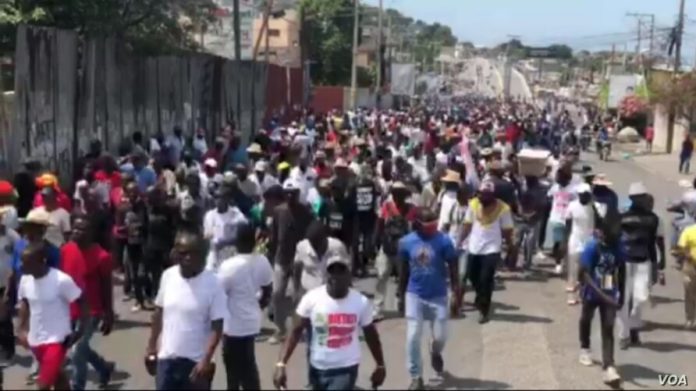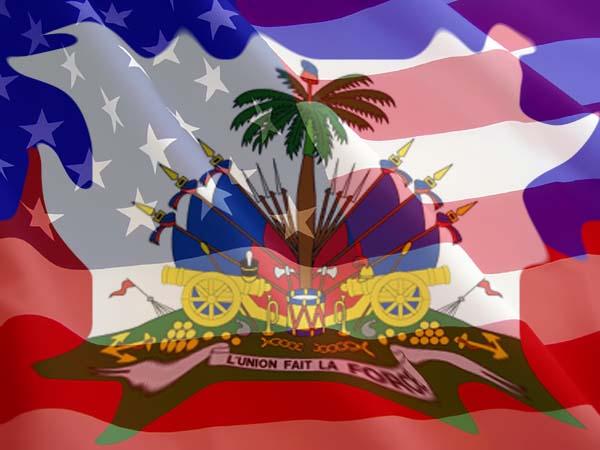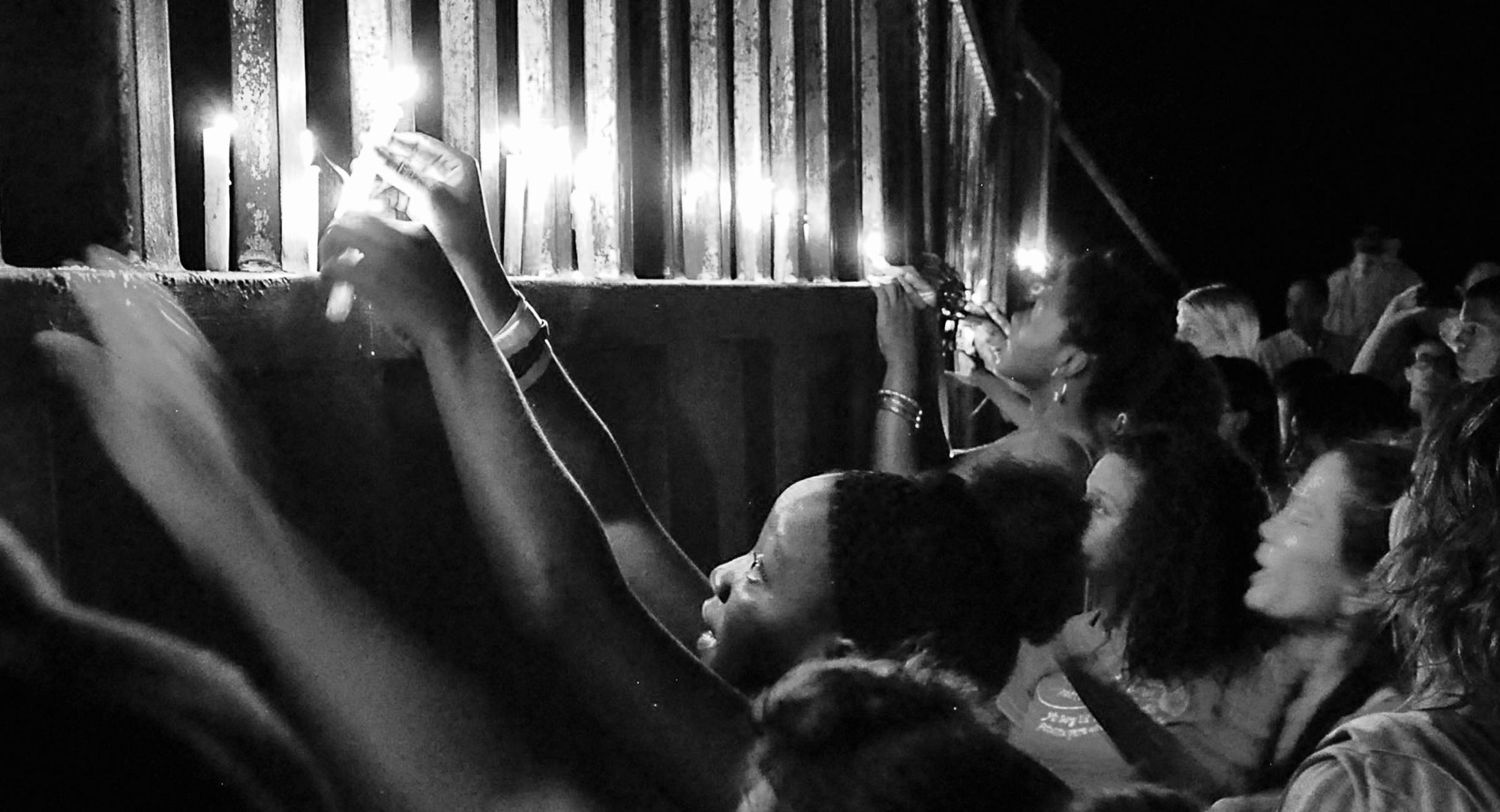WASHINGTON/PORT-AU-PRINCE – Thousands of Haitians filled the streets of the capital, Port-au-Prince, again Sunday to call on President Jovenel Moise to step down and to demand a crackdown on kidnappers, who they say are holding the nation hostage.
“We cannot accept this kind of society,” said a doctor, who was part of the protest but did not give his name. “We have an incapable government. We need the proper conditions to work and treat patients.”
Medical professionals who spoke to VOA said they are outraged over the Feb. 28 attempted kidnapping and killing of one of their colleagues. They organized a two-day work stoppage March 2 in a show of solidarity and took to the streets Sunday.
Haiti has seen a spike in the last year in abductions targeting citizens from all sectors of society. The criminals have been indiscriminate in their targets, asking for ransoms as large as $5 million from the poor as well as the rich. Protesters hold the president responsible for failing to bring the perpetrators to justice.
During the first week of March, Moise took several steps to respond to the kidnappings, which have raised alarm among officials from the U.S., the United Nations and the European Union. The president held a series of meetings with law enforcement officials and members of his cabinet. Moise said a special anti-kidnapping unit of Colombia’s police force will help Haiti shape a more targeted response.
“Law enforcement has been instructed to intensify their efforts against insecurity. They must better coordinate their strategies, share intelligence, launch interventions and take all necessary actions to this end,” Moise tweeted on March 2.
Lawyers from the legal human rights group Collectif des Avocats pour la Défense des Droits de l’Homme (CADDOH) also joined Sunday’s protest, offering free legal assistance to anyone who might be arrested. Lawyer Arnel Remy decried the government’s disregard for the rule of law and had a message for the international community.
“It’s important for the international community to respond to this protest. … Jovenel (Moise the president) has been here for five years, and the judicial system has not functioned properly during that time,” he told VOA.
Remy took issue in particular with a communique announced this week by Prime Minister Joseph Jouthe that outlaws tinted glass on all vehicles except government and diplomatic cars. The measure outraged Haitians who have spent a lot of money to have their windows tinted as a measure against kidnappers and will now lose their investment and that protection.
The prime minister defended his communique, saying it was aimed at kidnappers who ride around in cars with tinted windows, preying on victims.
“Kidnapping is state-sponsored. So of course it will never be defeated,” alleged ex-Senator Steven Benoit, who marched with protesters. “Just wait, two or three weeks after Jovenel (Moise) is no longer in power, the kidnappings will stop.”
The president has denied any link to kidnappers.
Businessman Wolfi Hall, himself a kidnapping victim, said people need to understand that the trauma of the crime lingers long after a person is freed.
“There are pains that remain with you for the rest of your life,” he told VOA. “God only knows why your life was spared. Because after you’ve been traumatized, it doesn’t go away in a day. It’s an ugly experience — I don’t wish this on anyone — and you can only understand what I mean if you’ve been kidnapped.”
A group of handicapped people told VOA they had decided to join the protests for the first time to send a clear message to the president and the international community.
“Jovenel Moise, you are Haitian just like me, you say you love the country, please leave us the key to the (national) palace. You can’t be pleased with the situation we are in now. You represent everything that is wrong,” a blind woman told VOA.
She then turned her attention to U.S. officials.
“You say you are the friends of Haiti. Jovenel Moise does not represent us. I know the United States can’t do anything for Haiti — we know you have your own interests (to defend),” she said. “You take good care of dogs in your country, they get special care — I know you love people, too — well, we the handicapped are in the streets of Haiti today. You understand what that means. This is something we never do. We are the most disadvantaged (people) in society and look USA today we are in the street.”
It is rare for handicapped people to participate in street protests due to the grueling nature of the course, largely on foot at a brisk pace, climbing up steep, winding hills on roads that are sometimes not well paved, do not have sidewalks, in a hot and humid climate.
On March 5, two men linked to kidnappings were arrested in Haiti and turned over to U.S. Drug Enforcement Agency and FBI agents.
Peterson Benjamin, also known as Ti Peter Vilaj, and Lissner Mathieu, also known as Ti Nwa and has used the last name of Joseph, were flown to the United States where they are wanted in connection with drug trafficking, violating terms of probation and kidnapping.
Mathieu, a U.S. citizen, pleaded guilty in 2006 to drug charges in the U.S. but fled to Haiti in 2008.
Benjamin has been linked to a dozen kidnapping cases, some of which involved U.S. citizens, the Miami Herald reported.


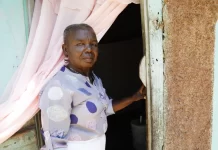

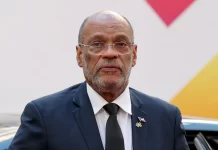




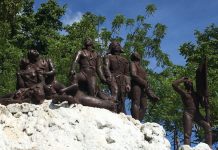




















![Phyllisia Ross – KONSA [Official Music Video]](https://haitiville.com/wp-content/uploads/2014/08/phyliisia.jpg)
